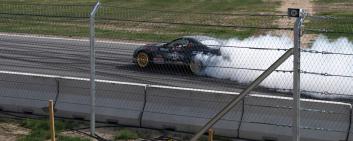KIBAG is a leading Swiss company in the business areas of building materials, construction services as well as the environment and waste disposal. It employs around 1,800 people. In the interview we spoke with Bernhard Schleich. He is the Managing Director of KIBAG and has several years of experience in business activities abroad.
What criteria should suppliers use to select their target markets in the infrastructure sector?
In my opinion, the following factors are important for successful business: A company should generally try to get an overview of the most important legal and technical regulations in the target market first of all. Ideally, it will be a democratic country where corruption is not widespread. A functioning judiciary that acts independently facilitates many things. Ideally, one or more of the company’s staff will already have good contacts in the target country. Furthermore, there is the question of whether suitable and appropriately trained staff can be found locally. What’s more, you should check which import duties have to be paid, and you will also need to grapple intensively with entry regulations, currency development and the insurance system. It’s also important to clarify how local profits can be transferred to Switzerland, whether this is possible at all and, if so, how high the transfer costs are. And last but not least: The company must be able to guarantee the safety of its staff at all times.
How did you succeed in partnering with a consortium or EPC contractor?
In Brazil we had very good contacts with local business people through a staff member, who put us in touch with our consortium partner.
How do you deal with public sector clients?
If you want to participate in a public tender, it is advisable to carry out an assessment of the client. For example, you should check its payment practice, the qualifications of its staff, and also its susceptibility to corruption. It is also helpful to find out whether the client already has experience with similar projects. When contacting a potential client, it is advisable to present your own company and its qualities to them. We have not yet carried out any projects with our own financing, so we do not have any practical experience in this regard. However, we can well imagine tackling the financing of our projects ourselves and are already looking into this issue.
As a Swiss SME, how are you or were you able to compete with foreign competitors or local companies?
Swiss SMEs can score points above all by offering a product that does not yet exist in the target country or is not produced there. For example, KIBAG offers the EMAS system as well as rapid repairs of landing strips with high-strength, fast-setting concrete.
What are the strengths of Swiss SMEs? Which Swiss technologies, knowledge and offerings are particularly in demand in foreign target markets?
First and foremost, the client expects reliability (adherence to deadlines) and Swiss quality from a Swiss company. Although the client wants/demands these qualities, they are not always willing to pay a premium for them, but rather expect the work to be done in line with local prices. In other words, Swiss quality, but generally at local prices.
What basic advice would you give other Swiss SMEs for a successful market entry?
It’s important to find a local person you trust that you can count on 99% of the time. This person must have the appropriate knowledge and understanding of our Westernized way of thinking and, on the other hand, the required local network. This trusted person has a key role: With their know-how, for example, they help with setting up a company or advise the business on local regulations, taxes, etc. They also solve local challenges and open doors to authorities and potential clients. If a company has a business idea, it must clarify whether it has suitable staff of its own who are also willing to work abroad for a long period of time – clear commitment from employees is needed in this regard. If there are no suitable employees available, it’s better to avoid foreign business. For firewall reasons, it is advisable to set up a local company and, if possible, process orders through it.






